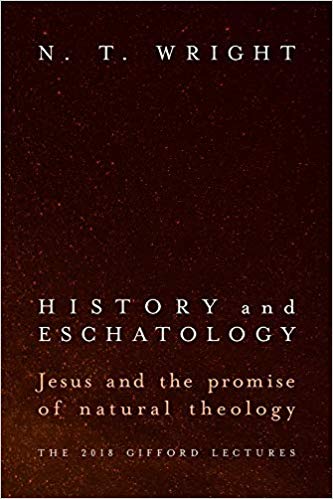BEN: Rightly you stress that the resurrection of Jesus involves a real embodied existence, only one that is apparently immune to disease, decay, and death now. And correctly you stress that ‘dying and going to heaven’ as a form of afterlife is barely mentioned in the NT compared to the stress on new creation, new creatures raised from the dead. After 2,000 years of waiting for the return of Christ, it is perhaps no surprise that the emphasis shifted from life in the future on earth as resurrected people to dying and going to heaven. After all, pastors have to keep doing funerals, and they don’t tend to emphasize ‘ashes to ashes dust to dust in sure and certain hope of the resurrection’. How frankly does one keep the NT hope of future resurrection alive and well in today’s church, in light of the passage of so much time? Why shouldn’t people see Jesus’ resurrection as an historical anomaly rather than the beginning of the new creation?
TOM: The passage of time isn’t that important. There is plenty in scripture about waiting and patience. After all, the Jews waited half a millennium for Isaiah 40 to be fulfilled, but it eventually was . . . if we preachers and teachers more regularly preached on 1 Corinthians 15 and Romans 8, and indeed on the resurrection narratives as they stand (which means NOT talking about ‘going to heaven’ – the ascension being something different, namely Jesus’ enthronement and the fulfilment of his High Priestly sacrifice) then the funerals would look
after themselves. It’s perfectly possible to have a resurrection-focused funeral; it’s just that if you’re not preaching about resurrection fairly regularly, and if you’re singing hymns about ‘way beyond the blue’ or ‘we’ll fly away’, then it will be much harder . . .
BEN: One of the texts you highlight is Rom. 8— ‘God works all things together for good for those who love Him’. What really do you take this to mean? That not all things that happen to believers are good or from God, but that in the hands of God he can weave it into a larger pattern of life for the good of that person? Or do you think Paul is talking about divine providence in the sense that John Wesley viewed it when he was reflecting on the riot in Wednesbury when he preached there where there were ruffians in the audience prepared to pelt Wesley with rotten eggs, and Wesley said ‘by a singular providence of God, the crowd pressed in on the ruffians who had come to do mischief and their weapons were smashed in their own pockets, with an odor that arose which was not so sweet as balsam, but nonetheless was an odor pleasing to the Lord who had foiled their designs’. How does divine providence fit into a discussion of natural theology?
TOM: Nice quotation – I confess I didn’t know that one. I think in extremis, faced with an angry crowd smelling of rotten eggs, one can be forgiven for quick and perhaps tongue-in-cheek assessments of ‘what God was doing in all this’. But, as I said before, whatever Romans 8.28 means it does NOT mean that most Christians most of the time ought to be able to say how precisely this or that apparently random occurrence was a fulfillment of God’s perfect will. As a pastor, and in my own life, I’d say that if one is sometimes permitted to see that kind of thing, it is often (not always) much later, and it comes with a humility which is unable as it were to ‘take advantage’ of having an inside track on God’s purposes . . . There is of course an alternative reading of that verse, in the light of verses 18 to 27, that God works all things for good through [the suffering and wordless prayer of] those who love him . . . but that’s another story . . .













